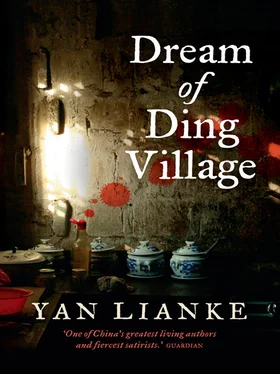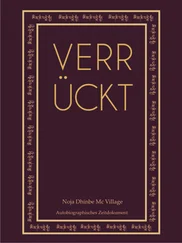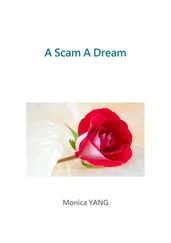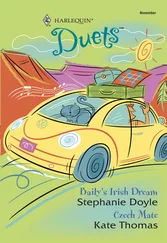Death settled over Ding Village like deep, black night, blanketing the neighbouring hamlets and villages. The news that passed back and forth along the streets each day was just as dark. If it wasn’t that another person had come down with the fever, it was that someone had lost a family member in the middle of the night. News even spread that a woman whose husband had died from the fever was planning to remarry into a distant mountain village, as far away as possible from this fever-ridden, god-forsaken plain.
The days were slow and tortuous. Death hovered in the doorways, buzzing from house to house like a mosquito spreading disease. Wherever it touched, you could be sure that three or four months later, someone else would be found dead in his or her bed.
So many people were dying, so many were dead. In one household, a family might weep for a day before burying their relative in a black wooden coffin that had cost their life savings. In another household, there might be sighs instead of tears, a family gathering around the corpse in silent vigil before the burial.
The three elderly village carpenters worked all day long building coffins. Two of them came down with backaches from overwork. The paulownia trees used to make the coffins were all chopped down. There was no timber left in the village.
Old Mister Wang, the maker of funeral wreaths, was kept busy cutting and snipping paper flowers, until his hands were covered in blisters that dried into hard, yellow calluses.
The villagers became indolent and indifferent to everyday life. With death camped on their doorsteps, no one could be bothered to till the fields or do any planting. No one bothered to leave the village to look for seasonal work. The villagers spent their days at home, their doors and windows shut to stop the fever from coming in.
But that’s what they were waiting for, waiting for the fever to rush in and kill them. Day by day they waited and watched. Some said that the government was planning to send trucks and soldiers to round up people with the fever and bury them alive in the Gobi Desert, like they used to do with plague victims long ago. Although everyone knew that this was just a rumour, somewhere in their hearts they believed it. They locked their doors and windows, stayed at home and waited for the fever to come, and for more people to die.
As the villagers died off, so did the village.
The earth grew barren. No one turned the soil.
The fields grew dry. No one watered the crops.
In some of the homes that had been touched by death, the families had stopped doing the housework. They no longer washed the pots and pans. From one meal to the next, they cooked rice in the same unwashed pot and ate with the same dirty bowls and chopsticks.
If you hadn’t seen someone in the village for weeks, you didn’t ask where he or she had gone. You just assumed they were dead. If you happened to run into them a few days later, perhaps while drawing water at the well, you’d just stop and stare in shock. There would be a long silence as you stared at each other in amazement. Then you’d say: ‘My God, you’re still alive.’ And he might answer, ‘I was in bed with a headache. I thought it was the fever, but as it turns out, it wasn’t.’ After some relieved laughter, you would brush past each other, you with your shoulder pole and wooden buckets filled with water, he continuing his way to the well with empty ones.
That’s what our village had become.
Ding Village in the days of fever, the days of agony and waiting.
After making up his mind to talk to my father, Grandpa left the school and trudged down the road to the village. It was sunset, and the light had already begun to fade. When Grandpa reached the centre of the village, he saw Ma Xianglin sitting outside his house repairing his three-stringed fiddle. Ma Xianglin was an amateur singer and storyteller. And Ma Xianglin had the fever. The instrument he used to accompany his singing hadn’t been played in many years; its lacquered surface was chipped and peeling. Ma Xianglin had built his family’s three-bedroom brick house by selling his blood. Now, as he sat beneath the tiled eaves of the house he’d bought and paid for, he took up his fiddle and began to sing hoarsely, in a voice as rough as tree bark:
The sun that sets in the western hills
and rises from the eastern sea
brings another day of joy,
or another day of misery . .
The grain you sell for pocket change
brings another day of plenty,
or another day of want . .
Listening to Ma Xianglin sing, you would never guess that he was sick. But Grandpa could see that the colour of death was on him. As he drew closer, he noticed a greenish tinge to Ma Xianglin’s skin. Then there were the sores, pustules that had hardened into dark red scabs, dotting his face like shrivelled, sun-dried peas. When Ma Xianglin caught sight of Grandpa, he put down his fiddle and smiled. It was the sickly, hopeful, overeager smile of a beggar hoping for food.
‘Professor Ding,’ called Ma Xianglin in his sing-song voice. ‘I heard you had a meeting with the higher-ups.’
Grandpa couldn’t help but stare. ‘Xianglin, since when did you lose so much weight?’
‘I haven’t lost weight. I can still eat two steamed buns at one sitting. . so what did they say?’ Ma Xianglin asked impatiently. ‘Have they found a cure?’
Grandpa thought for a moment. ‘Sure. They said the new medicine will be here any day now. One shot and you’ll be cured.’
Xianglin grinned. ‘When do we get the new medicines?’
‘It won’t be long.’
‘How long is not long?’
‘Not long. No more than a few days.’
‘How many days, exactly?’
‘If we don’t get the medicines in a few days, I’ll go back and ask them.’ Grandpa turned and continued towards my father’s house.
Turning into a narrow alleyway, Grandpa noticed white funeral scrolls pasted on the lintels of every house. Some of the scrolls were old and yellowed; others new and blindingly white. With all that white paper fluttering in the breeze, the alley looked like it had been hit by a snowstorm. Further down the alley, Grandpa passed the house of a family whose son had died of the fever just before his thirtieth birthday. The funeral couplet pasted on the lintels read: Since you have gone, the house is empty, it has been three seasons now / Extinguish the lamps, let the twilight come, we must endure the setting sun. Then there was the Li family, whose daughter-in-law had died of the fever not long after marrying their son. She had been infected with the disease in her hometown and passed it on to her husband and newborn child. Hoping that their son and grandchild would take a turn for the better, the family had pasted up this couplet: The moon has sunk, the stars are dim, the family home is dark / but there is hope that come tomorrow, the sun will shine again.
At the next house there were two white scrolls, one on either side of the door, with no calligraphy at all. Curious as to why anyone would bother to paste up blank funeral scrolls, Grandpa took a closer look. It was only when he ran his fingers over the scrolls that he discovered two more layers of paper underneath. At least three people in this house had died from the fever. The family, either too tired or too superstitious to write yet another funeral couplet, had simply pasted up the new scrolls and left them blank.
As Grandpa stood in the doorway staring at the empty scrolls, he heard Ma Xianglin, who had followed him down the alley, shouting after him.
‘Professor Ding! Since the new medicine will be here soon, why not celebrate?’ Grandpa turned around slowly.
Читать дальше












